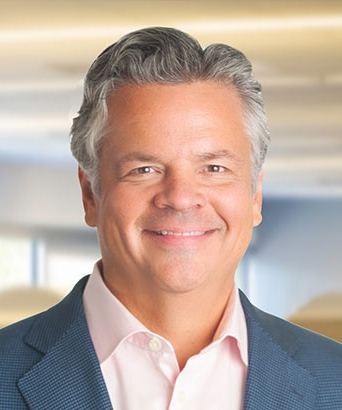Alberto “Beto” Casellas has risen to a top position at a major consumer financial services company, achieving the kind of success he aims to help others realize even if they have barriers to overcome.
Casellas is CEO and executive vice president of the Health and Wellness division at Synchrony. His job includes serving as the executive sponsor of Synchrony’s Hispanic Network+, one of eight groups driving diversity at the company. He’s passionate about that part of his job because he’s seen firsthand how important diversity is to business and society as a whole.
“I was born and raised in Puerto Rico,” where most everyone around him was Hispanic and spoke Spanish, Casellas says. But then he had the opportunity to go to Yale University, “which was an experience in terms of diversity of thinking and population.”
At Yale, Casellas was exposed to people from different backgrounds, countries, and religious beliefs—an experience that “definitely opened my eyes as to what the power of diversity and inclusion can be in terms of bringing forth different ideas and different thinking, and working together to produce a certain outcome.”
That eye-opening experience has stayed with him throughout his career. As Casellas explains, “I’ve always wanted to be able to include at the table different people with different backgrounds, because I think the end result will be better if it includes diverse thoughts and opinions, rather than if we’re homogenous.”
Diversity as Part of an Organization’s DNA
It’s the work of the diversity networks that Casellas credits for the company’s success in making diversity, equity, and inclusion part of the organization’s DNA. Synchrony has eight employee networks, representing the interests of African American, Asian, Hispanic, LGBT, Native American, and women professionals, as well as people with disabilities and veterans.
All the networks include a plus sign in their names. Casellas explains that the “plus” means that everyone in the company is invited to be part of the conversation.
“And basically what that has done is, for example, in the Hispanic network, we have non Hispanic individuals who are a part of the network to support our Hispanic employees or to simply learn more about our culture. … In the women’s network, we have as many males in the network [as women] in terms of being part of the conversation, being part of the events, being part of the leadership that runs those networks,” Casellas says.
That “plus” aspect of the networks means people can join a network because, for one reason or another, they feel an affinity to it. For example, Casellas says many employees are part of one or more networks because they want to show support for their colleagues and be engaged in the networks’ activities.
An External ‘Plus’
Leadership from the top level of the company is key to the networks’ success, Casellas asserts, adding that the leadership engagement in the Hispanic network is “tremendous”. He and other company leaders of Hispanic descent meet regularly to plan content and events, to discuss employee feedback, and to simply gauge the pulse of what’s going on. “Having that engagement at the top is important for the company and the networks.”
Those leaders also take a personal interest in individual employees, making it a point to continue to coach, mentor, and sponsor colleagues of all levels who are looking for advice.
“Anyone can reach out to me and say, ‘Hey, Beto, I need 25 minutes. I’m debating what to do here. I would love to have a conversation with you because I think it will be relevant and you may have something for me to help with,’” Casellas says. “And I do those all the time. It’s an important part of what I do in terms of engagement, personally, and the other network executives do as well with many of our employees.”
Casellas’ efforts also aren’t confined to Synchrony. The company has chosen to take its diversity agenda external by creating the Latinx Executive Alliance that includes executives from outside of Synchrony. They chose to create the alliance “because we think it’s important for us to engage executives from inside and outside the company, in conversations that we’re having around how to attract, retain, develop, and advance Hispanic talent in our own organizations.”
The creation of the alliance represents a commitment to spread what Synchrony has learned internally to other organizations to work toward the larger goal of advancing, retaining, and developing diverse talent across all kinds of organizations.
“I’m personally passionate about the alliance,” Casellas says.
“We are creating a coalition of C-suite executives and business leaders from different companies, industries, and sectors, and dedicating our time to collectively help Latinx employees advance in corporate America,” he adds.
“We learned a lot internally within Synchrony and thought we could be even more influential and help others as well.’ So far, the response that we have gotten from our fellow leaders has been great.”
Not an ‘Extracurricular’ Activity
One of the keys to Synchrony’s success in its diversity efforts is that Casellas’ leadership position in the Hispanic network—and other executives’ positions in all the other networks—is a key part of the job, not something tacked onto a list of other duties.
And because diversity is part of the company’s DNA, diversity work is everyone’s job.
“It’s not just human resources. It’s not just a division of the company. It has to be within the leadership of the business, because that’s where it starts, quite frankly,” notes Casellas. “And it may be a grassroots effort in some other organizations, but what I would say for those organizations that do not have that leadership type of connectivity is that it will be a gap in terms of being able to really move the agenda forward. For us, we treat it as part of our business. It’s part of what we do as employees, as leaders. It has become part of our DNA.”

